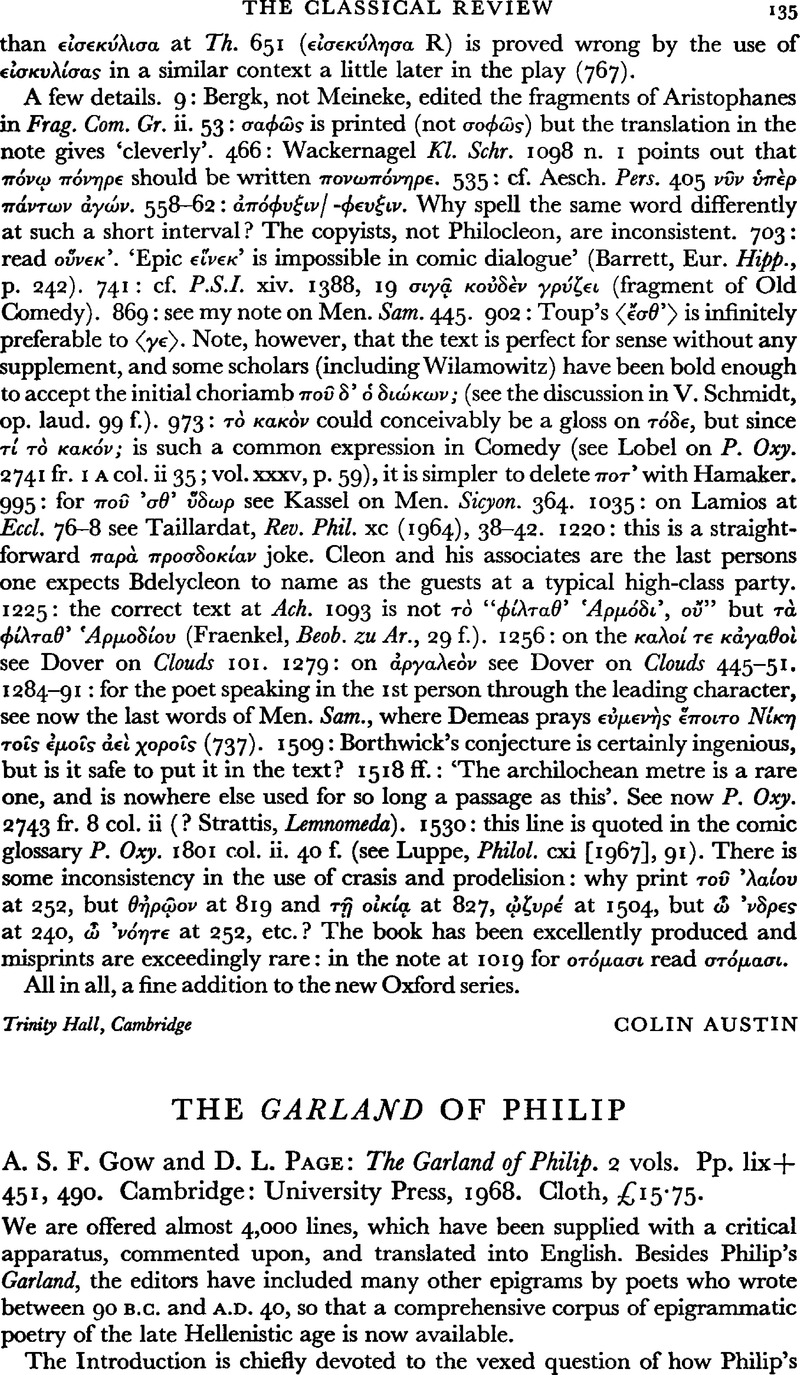No CrossRef data available.
Published online by Cambridge University Press: 27 February 2009

page 136 note 1 The latest scholar usefully to discuss the matter, A. Cameron (Gr. Rom. Byz. Stud. 1968, pp. 323 ff.), candidly admits that ‘certainty here is unattainable’, and that all one can do is to present a ‘chain of hypotheses’, more or less hazardous. His own surmise does not seem convincing to me, because it contradicted by the evidence of alphabetical order present in the texts (p. 324) as well as by the explicit statement made by the lemmatist, which supports such evidence (p. 330); moreover, it must postulate that Meleager was not precise in evaluating the ‘formal features’ of epigrams (p. 329), and that Philip, although he adopted the alphabetical system, nevertheless was not ‘thorough-going’ in adopting it, and deviated from it, thereby going against ‘contemporary practice’.
page 136 note 2 ‘Studies in Hellenistic Epigrams’, in Mus. Phil. Land, (forthcoming).
page 137 note 1 Ἓνδετος means literally ‘angebunden’ (cf. Passow, Wört., s.v.); ἐνδέω means ‘tie to’
page 137 note 2 I should like to add that there is need to postulate a form εὔμηκος coined by the poet alongside εὐμἠκης, on the basis the type εὔτειχος/εὐτείχης: the genitive εὐμήκων may well be the correctly accented genitive of εὐμήκης, as συνήθων is the genitive of συνήκης (cf. Herodian, 1, 428, 21 ff. Lentz, and, for εὐμήκης belonging to the same class as συνήθ^eta;ς, Herodian I, 81, 8).